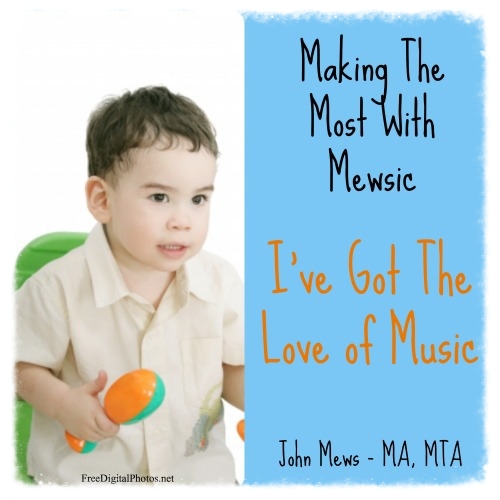
BLOGS
Educational blogs for parents and professionals
Learning Concepts Through Music Therapy
Have you ever asked your child to put something "in" the box and he/she puts in elsewhere? Then it is most likely that you child may have challenges with differentiating basic concepts such as in, on, over and under.
I have worked with many children who are confused with these everyday concepts and have no idea how to differentiate between in, on, over and under. This is a common challenge for most children and especially common for children with special needs and those on the autism spectrum disorder.
Over and over again I have parents and other professionals asking me how I teach children how to differentiate between these concepts. I simple tell them, "I use music" as a fun and motivating tool to help them learn, understand and practice these basic concepts.
Just the other day I used the drum to help a 3 year old boy on the spectrum differentiate between "on", "under" and "in". We were singing 5 Little Monkeys jumping on the DRUM. I revamped the lyrics to make it more applicable in our music therapy session. When we were done with the monkey I asked him to put the monkey in various locations such as, "on the drum", "in the drum" and "under the drum". The little guy had so much fun hiding the monkey in all the areas he had no idea he was learning these concepts.
After this session I was inspired so I wrote a song to help you and your child learn these basic concepts through music. Feel free to adapt the words of this song to make it your own as well as to match the concepts to the particular environment for you and your child. In this song I kept all the concepts familiar to a music therapy setting (as it's mostly my working environment), but you may want to adapt the lyrics to school or home. For example, the first line is "I put my mallets in the box when it's clean up time". You may want to change it to, "I put my crayons in the box when its clean up time.
Please feel free to share your personal lyrics with us as we love to hear from you!
I hope you and your child will have fun learning these basic concepts and finding creative new lyrics to adapt to your particular environment. Have fun making the most with MEWSIC!
Download the song here! or by clicking the image to the right.
Click below to hear a sample of the song.
Let's Be Social
Please share, pin, like and leave your comments below as I love to hear from you!
For FREE songs, videos and tips on how to support children with special needs through music click here.
Image Courtesy of Tuelekza/freedigitalphotos.net
5 Main Benefits of Drumming for Children With Special Needs
Does your child have challenges with speech and articulation? Eye-hand coordination? Or even having difficulty with social skills or social cues? Then drumming maybe the right tool for your child to overcome and build on some of these challenges.
There has been a lot of research on the benefits of drumming over the past few decades. Drumming has been shown to help reduce depressions, boost immune systems and build self-esteem. In this blog I want to focus on five main benefits of drumming for children with speical needs.
1. Increase Communication and Speech
Drums can reinforce speech, vocalizations, sounds and even help with sentence building. You can use drumming to reinforce word syllables and then expand to full sentences. Have the child sound out each syllable or word as they simultaneously play it on the drum.
2. Support Eye-Hand Coordination/Motor Skills
Drumming can help strengthen upper body control, arm movement and increase eye-hand coordination, particularly if you use more than one drum. Drumming with mallets helps with reaching, grasping, fluidity of movement and fine motor skills.
3. Develop Social Skills
Groups drumming, with the proper facilitation, is a powerful exercise for people of all ages to strengthen social skills. Group drumming teaches children to listen, pay attention, turn-taking, sharing, and taking cues from one another.
4. Support Emotional Needs/Impulse Control
Drumming can help a child learn to regulate their emotions. It can be very useful for expressing emotions and to "get it out." Drumming can vent aggressions, and invite in a calmer state of mind, particularly improve impulse control.
5. Improve Self-Esteem and Fun!
Drumming is catchy and can be a lot of fun. If you have ever been in a drumming group you can surely attest to this. Drumming is a great way for children with special needs to play and to get physical exercise.
Drumming combines motor movement with auditory and visual feedback, which makes it a great tool for strengthening a variety of skills for children with special needs. Since drumming is multi-sensory, it facilitates greater engagement, encourages learning, brain function, and skill building all while having fun! I have seen drumming to be very effective for my clients. I hope you'll give it a try!
To get you started, I wrote a song that helps facilitate a fun drumming experience while working on various skills mentioned above. To download the full song, click on the image to the right, check it out and let me know what you think. Happy drumming!
You can also view my youtube video on how to make your own rhythm sticks! Click Here To View
For FREE songs, videos and tips on how to support children with special needs through music click here.
LET'S STAY IN TOUCH !
Please leave your comments below as we'd love to hear from you.
10 Years as a Music Therapist And Still Using The "Top 10 Greatest Hits"
After Ten Years as a Music Therapist, I Still Use the “Top Ten Greatest Hits”
I am celebrating my tenth year as a music therapist. I have spent many hours learning new songs, as well creating new ones and developing adaptations. However, I’m finding that I tend to use the same classic favorites over and over! These songs have such great utility in that they can be easily adapted for many different purposes. These top ten melodies reliably get kids to start toes tapping, hands clapping and bodies grooving.
I use these songs as a platform for improvisation to inspire and motivate children with special needs. It also saves me from having to create something new all the time!
So here are my Top 10 ”Greatest Hits” which I’ve found work well with children in music therapy:
- You are My Sunshine
- If You’re Happy and You Know it
- Shake Your Sillies Out
- Twinkle, Twinkle Little Star
- Head and Shoulders, Knees and Toes
- Row, Row, Row Your Boat
- Do as I’m Doing
- Alphabet Song
- We’re Gonna Rock Around The Clock Tonight
- London Bridges
- Hey Dum Diddley Dum
Ok, I threw in an extra one for fun and good measure!
What are you favorite Top 10 Greatest Hits? Maybe together we can create a Top 100 Greatest Hits! Please share and comment below.
For FREE songs, videos and tips CLICK HERE!
Follow us at the links below
Image Courtesy of Stuart Miles/FreeDigitalPhotos.net
5 Helpful Tips to Make Your Child's I.E.P Meeting More Tolerable Than Terrifying
For most parents, Individual Education Plan (IEP) meetings are stressful and sometimes feel like a waste of time. Here are some helpful tips that should help you get the most out of your child’s IEP.
1. Focus on your child’s strengths
Rarely have I participated in an IEP that uses the child’s strengths as a focal point. I believe that it is critical to use the child’s strengths as one of the building block for success. Wouldn’t you find it demoralizing if someone only focused on your areas of weakness and was constantly trying to fix you?
2. Your child needs a break area/quiet place to go to
Most children need a break to avoid becoming over stimulated. Take time to familiarize yourself with the break/rest areas available in your child’s school, and see if they fit his/her needs. You may be surprised by some of the so-called “quiet” areas that schools consider to be the break/rest area. For example, one school I worked with used a noisy high-traffic lunchroom as their break room. Not a great idea, right?
3. I is for Individual! Your child’s IEP should be customized for your child’s individual needs
This should be common sense but many IEP’s can be hurriedly cut and pasted from another child’s IEP, or even from your child’s previous school year. Things change over time, and your child’s specific needs will change over time as well. Insist that the IEP be customized for your child’s current needs and learning capabilities.
4. Your child’s goals should be measurable!
How will anyone know if your child has achieved his or her goal(s) or not? Should the goals be re-evaluated? This is where measurement tools are very useful and important. Does your school have up-to-date tools to measure your child’s successes? If so, how and when are they being used? Be sure that your goals can be easily measured and observed. Otherwise, you will never know if your child is successfully achieving his or her goals or not. It may be as simple as asking your child’s teacher for a brief monthly progress report.
5. Be an ally! Your child needs you on the team!
Most IEP meetings I have been involved with started out as an emergency meeting. Schools and/or parents often wait until there is a serious problem, and then call an emergency meeting in an attempt to fix the problem. I’ve often sat uncomfortably witnessing both parents and teachers lashing out at each other in frustration. To avoid this, I believe it is very important that parents build a strong relationship with their child’s teacher and school administrators as early as possible. Keep in mind that teachers have an incredible amount of responsibility, and it’s tough to know and remember everything that is in your child’s IEP. Helping to educate them can be a great relationship builder and will go a long way toward ensuring your child’s success in school.
Here are some books I recommend.
Image courtesy of potowizard/FreeDigitalPhotos.net
Click Here to Join our Mailing List for: FREE songs, videos, and tips!



















